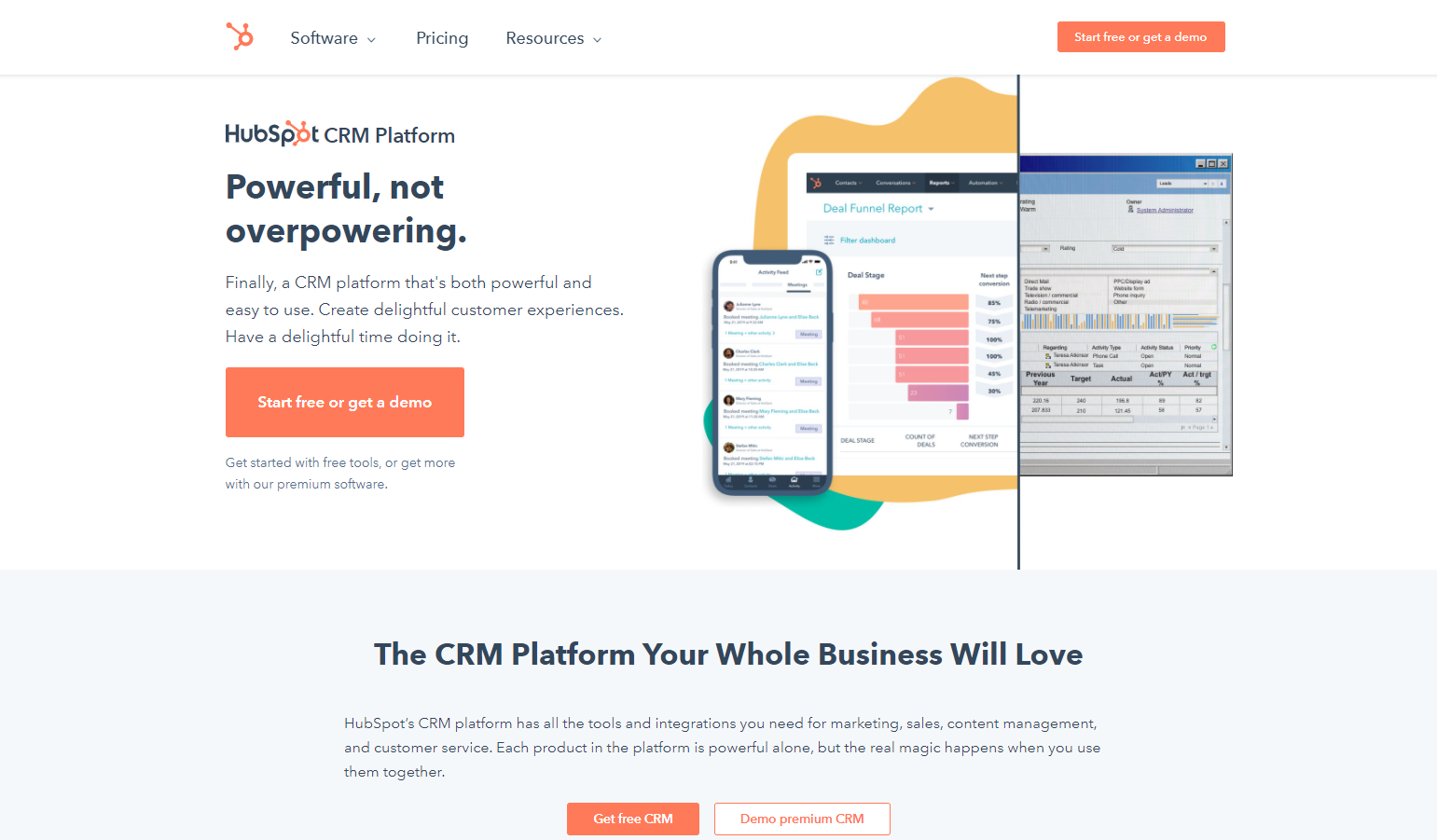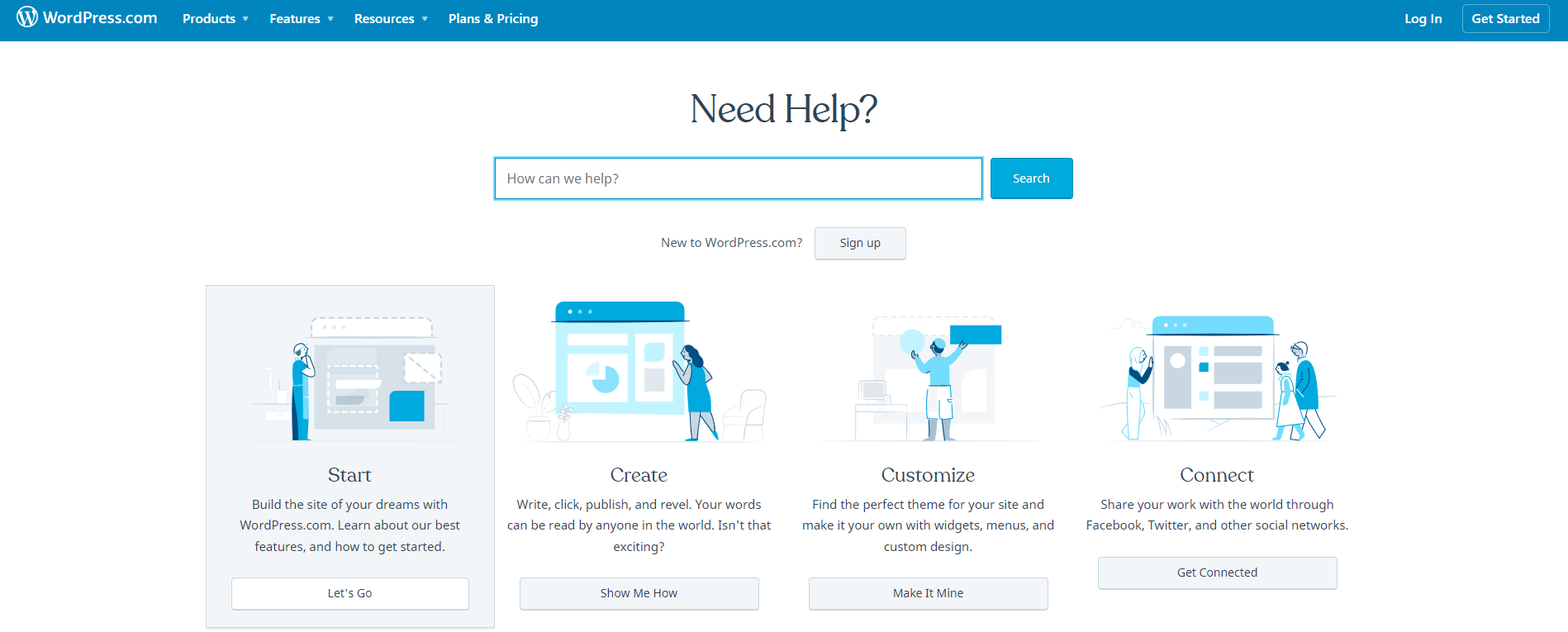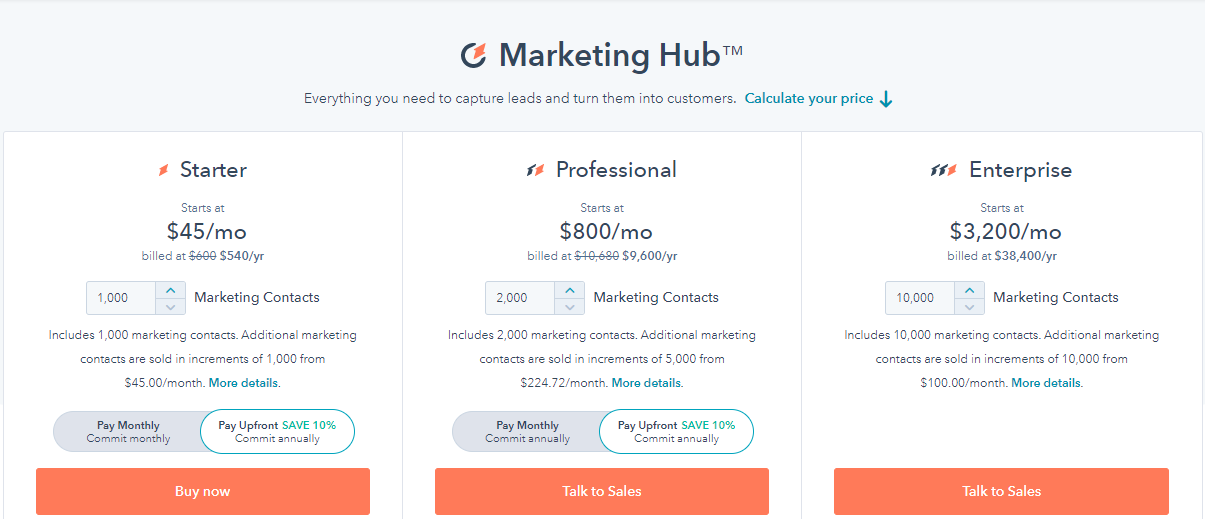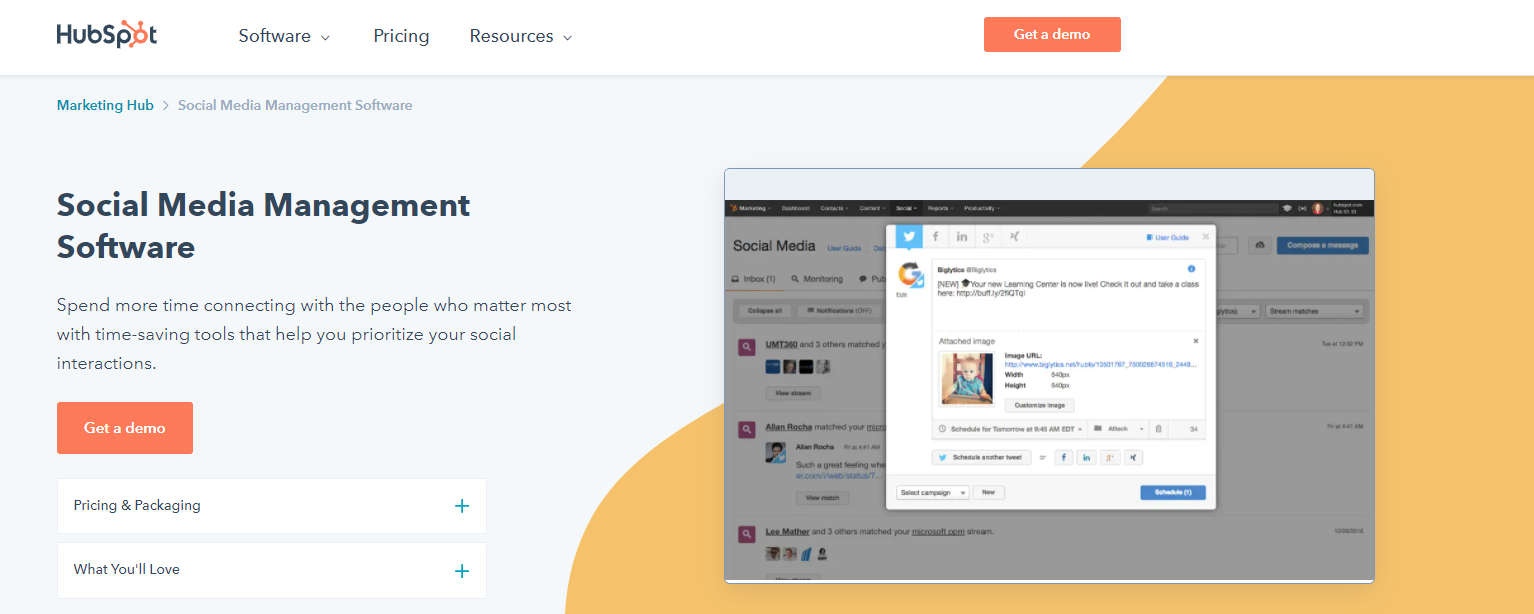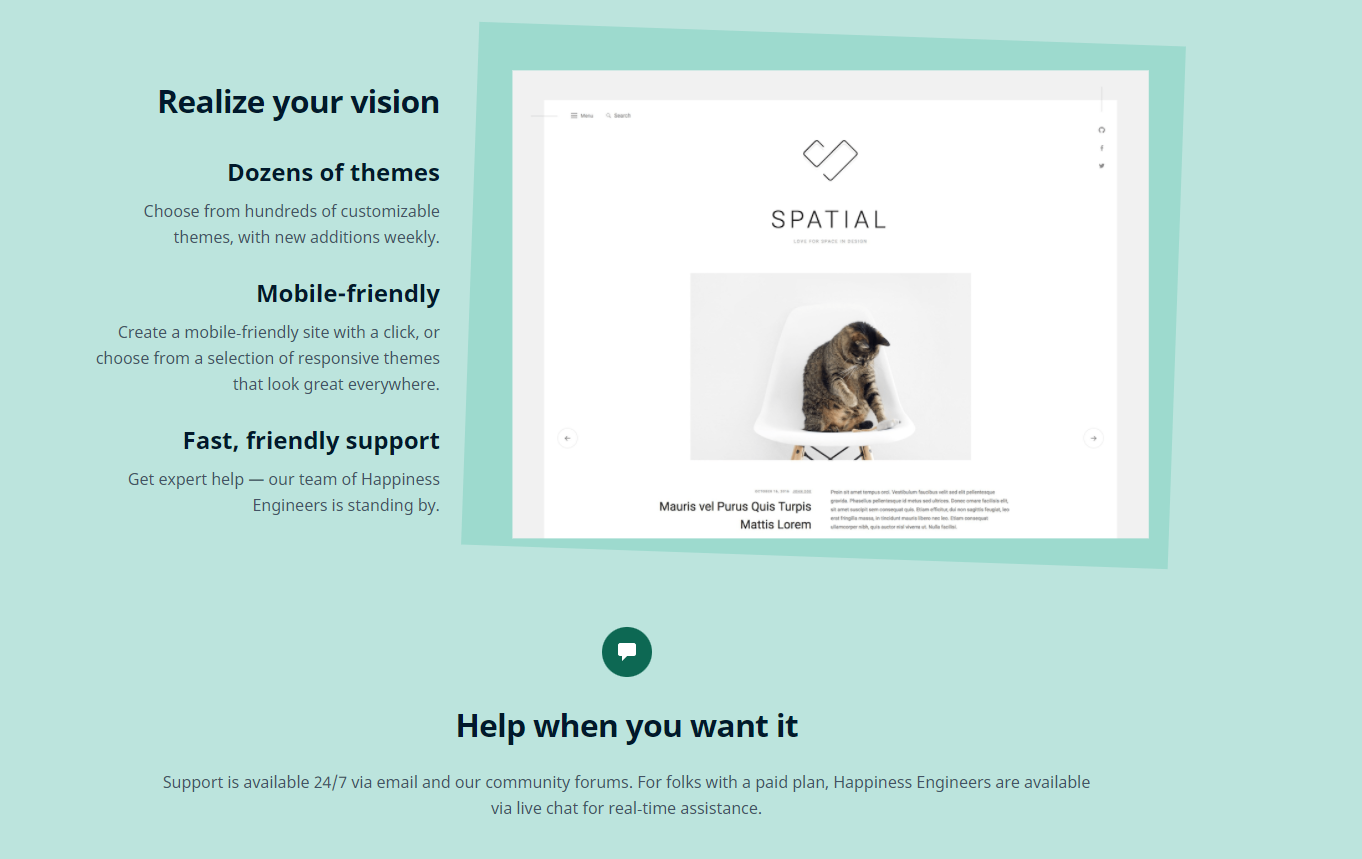Are you confused between HubSpot vs WordPress? Struggling to know that which one is better and why? Do you have bunch of questions regarding the same?
If yes then stay tuned with us till the end to find your idol one quickly.
Let’s start with the basic comparison !!
HubSpot Check out
Check out
|
WordPress Check out
Check out
|
|---|---|
| $45 per month | $4.80 per month |
HubSpot is the greatest option for people that are just starting out in business and seeking for marketing solutions. For many marketers, it's also a top focus. |
Anyone can make use of WordPress. Pricing, premium customer support, or even skill level do not limit the userbase. |
|
|
|
|
|
|
|
HubSpot is less difficult to learn. HubSpot lets you see how social media fits into your whole marketing plan rather than just focusing on it. It offers a more intuitive user interface. |
In the face of HubSpot, WordPress is tough. It is still simple to use because it does not necessitate a great deal of technical understanding. |
|
It is more feature-rich than WordPress and thus well worth the investment. Email marketing, live chat, email scheduling, and form creators are just a few of HubSpot's capabilities. HubSpot's objectives include social reporting and blog creation, among other things. |
WordPress has a variety of pricing choices for newcomers, all of which are reasonably priced. It provides one-of-a-kind plugins, themes, and other tools to help with budgeting. |
|
Hubspot provides customer service in a number of ways. For more extensive use, you can join Hubspot groups. There are self-help books, workbooks, recommendations, and templates accessible. You can access the company's customer blog, developer documentation, and solution partners. You can reach them 24 hours a day, 7 days a week. |
The WordPress customer service is excellent, however it takes 12 to 24 hours for them to respond. There is no live chat option available. Because the WordPress community is so huge, any question you have may be answered with a simple Google search. |
| Check out | Check out |
This article is based on HubSpot Vs WordPress for the people who are confused between these two and want to choose their ideal one.
HubSpot Vs WordPress are the two most popular website platforms for businesses that are completely committed to leveraging content to generate traffic, leads, and sales. However, which one is best for you?
If you want your website to serve as your business’s marketing center, HubSpot is the better investment. However, if you’re on a budget or run an e-commerce site, WordPress may be a better fit.
Whichever is the case, you may still benefit from HubSpot’s marketing tools. When it comes to inbound marketing content management systems (CMS), you’re probably familiar with two names: HubSpot Marketing and WordPress.
While these two systems account for the largest market share of business websites on the internet today, HubSpot Vs WordPress is very distinct.
Contents
- HubSpot vs WordPress 2024: Overview
- HubSpot Vs WordPress: Flexibility & Ownership
- HubSpot Vs WordPress: Customer Support
- HubSpot Vs WordPress: Conversions
- HubSpot Vs WordPress: Pricing
- HubSpot Vs WordPress: Editing & Maintaining of Website
- HubSpot Vs WordPress: Blogging
- HubSpot Vs WordPress: Social Media
- HubSpot Vs WordPress: Marketing Automation & Email Marketing
- HubSpot Vs WordPress: Data Analytics
- FAQs on HubSpot Vs WordPress :
- What is the difference between WordPress and HubSpot?
- Does HubSpot use WordPress?
- Is HubSpot bad for SEO?
- Is HubSpot a good CMS?
- Conclusion: HubSpot Vs WordPress 2024
HubSpot vs WordPress 2024: Overview
Choosing the appropriate between Hubspot Vs WordPress for your company website ultimately boils down to your budget and inbound marketing goals, so do not worry. By the time you conclude this essay, you should have no difficulty determining which course to choose.
However, before we get into some of the more in-depth comparisons between Hubspot Vs WordPress, let’s take a short look at what the two platforms do.
What is WordPress?
WordPress is a free website and blogging platform that enables you to quickly and inexpensively create a website. WordPress is the most widely used content management system (CMS) on the market, accounting for 25% of all websites on the internet.
Thousands of developers provide unique plugins, themes, and other tools to assist you in achieving all of your inbound marketing goals. Indeed, HubSpot’s whole suite of solutions is built to work with WordPress.
Unlike HubSpot, though, WordPress comes with a pretty simple platform by default. The majority of WordPress users depend on a custom theme or plugins to fully use the platform’s capabilities.
These are often developed by third-party developers, are readily integrated into the WordPress site framework, and may be used to transform the platform into something unique.
However, depending on your perspective, this could be a good or a bad thing. If you like getting your hands dirty and fiddling with various aspects of your website, this is a fantastic thing.
On the other side, if you’re unwilling to invest the time necessary to learn how to do everything independently or are concerned about third-party vulnerability, it may be quite a nuisance.
Of course, you may always hire a developer or an agency to do the task for you.
What is HubSpot?
HubSpot is a business software firm. When people talk about HubSpot, they’re often talking to the marketing software – an all-in-one solution that enables you to design landing pages, write SEO-friendly blog articles, run email marketing campaigns, manage analytics, and publish to social media all from a single dashboard.
The CMS (content management system) that HubSpot offers provides all of the capabilities necessary to host a complete website.
However, HubSpot also offers CRM and sales software, and all of their products interact flawlessly, resulting in an unequaled platform. By using all of HubSpot’s products, you’ll have all you need for end-to-end success with inbound marketing and sales.
This may not seem significant if you are already acquainted with HubSpot, but after you understand how much effort goes into assembling all of those individual components using a variety of different services from several suppliers, you will appreciate its ease and adaptability.
HubSpot Vs WordPress: Customer Support
Both platforms provide excellent support and have sizable communities that can provide educated assistance to consumers in need.
HubSpot provides a support forum and customer care representatives located in the United States to assist users who have an active account.
Additionally, they provide excellent marketing guidance and recommendations through their website, inbound.org, and HubSpot Academy. As is customary, HubSpot is more focused on marketing than on design or development.
That is, if you have marketing-related queries, they are excellent, but it may be more difficult to obtain free technical support in the HubSpot community.
WordPress is supported by a vibrant community of developers and contributors who provide technical and design ideas and assistance to users through documentation, a community support forum, and a WordPress manual, not to mention on YouTube, WordPress.tv, and other online venues.
Because the WordPress community is so large, every query you have is merely a Google search away. The WordPress community is big and guidance is freely available, which is one of the major advantages of working with the WordPress content management system.
HubSpot Vs WordPress: Conversions
Converting visitors into leads should be the main aim of your website, and to do so, you’ll need actionable forms to assist in the conversion process.
This may be accomplished on a WordPress-hosted site by installing a plugin such as Gravity Forms, JotForm, or Ninja Forms. However, the absence of certain traits does not negate their effectiveness.
This feature is incorporated into HubSpot, which means that everything you need to effectively attract and convert website visitors is included in your HubSpot COS. HubSpot has introduced a nice conversion tool called smart content.
Smart content is a customization technique that enables you to customize material to specific users depending on their pre-defined attributes or habits, as well as their stage in the purchasing cycle.
HubSpot Vs WordPress: Pricing
At first appearance, WordPress seems to be the clear victor in a pricing comparison. After all, it’s free, whereas HubSpot’s CMS begins at $45 per month. (Find out how to get the greatest deal here.)
While WordPress is initially less expensive, after you add all the plugins and tools necessary for an effective inbound marketing campaign, the expenses quickly escalate.
HubSpot is more than a marketing tool and a content management system; it’s a collection of solutions intended to assist you in growing your company online, with your website at the heart.
However, this does not imply that you need everything. There are also numerous price levels and à la carte add-ons available for the majority of their items.
As a consequence, you may choose just the features that you need and upgrade at any moment. Technically, you can do the same thing with WordPress by using plugins and integrating the platform with other technologies.
This is what the industry refers to as “Frankenspot.” Indeed, HubSpot walks you through the process of creating your own Frankenspot, offering the most cost-effective technologies available to match its features.
This enables you to start little and adapt as needed or to start with a mix of just what you need.
However, HubSpot should be seen as an investment rather than an expense, since the outcomes obtained from its use will always pay for themselves.
HubSpot Vs WordPress: Blogging
Probably WordPress’s biggest strength is how fast and simple it allows you to create a blog.
Once WordPress is installed on your website, you’ll see a “Entries” tab where you can immediately begin generating new blog posts.
The structure is comparable to that of most word processors, and if you have a notion of how a blog post should be written, you should be able to do most of that formatting using their bare-bones content editor.
The disadvantage is that their blogging platform is confined to the bare requirements unless you alter it using multiple plugins or a theme.
While you can immediately generate good blog entries with wonderful writing, you’ll need some more plugins to optimize your blogs for search engines, utilize more current formatting styles, and include calls-to-action (CTA).
On the other side, HubSpot’s blogging software comes equipped with almost everything you need.
For instance, HubSpot has built-in SEO that is constantly updated to reflect the newest Google algorithm updates. With WordPress, you’ll need to install and set up a plugin such as Yoast SEO.
Additionally, HubSpot’s blog is integrated with the rest of your HubSpot ecosystem, enabling you to simply add CTAs to your articles, show social sharing buttons, create processes, and track activity.
There are WordPress plugins that achieve comparable tasks, but they take more effort and fine-tuning to integrate everything effectively.
Additionally, you will have to rely on third-party programs for email, marketing automation, and maybe other services that operate outside of your WordPress site.
While both HubSpot and WordPress make it simple to create and publish blog articles, writing high-quality blog entries that serve a strategic purpose in your inbound marketing game plan takes extra tools and settings with WordPress.
HubSpot Vs WordPress: Marketing Automation & Email Marketing
Email is critical for the majority of firms that are establishing an internet presence. Email marketing and automation solutions may help you simplify your marketing strategy’s procedures, such as lead nurturing email campaigns or newsletters.
Without the appropriate automation tools, your team will almost certainly spend numerous hours sending emails, scoring prospects, and maintaining contact characteristics in the CRM.
HubSpot’s bread and butter is marketing automation. They provide some incredible solutions for automating several repetitive jobs. In terms of email, you may do basic A/B testing and include personalization tokens to further personalize your message.
Additionally, your CMS works perfectly with email marketing solutions, allowing you to automatically send newsletters as you post new material. Workflows are one of the greatest marketing automation capabilities offered in HubSpot.
You can use list segmentation to create targeted workflows that personalize your emails to each contact in your database. As is the case with the majority of content management systems, WordPress lacks native email marketing and marketing automation tools.
To create relationships with all of your inbound marketing prospects, you’ll need to depend on supplementary tools. While connections with MailChimp and AWeber are popular, you are once again reliant on third parties.
This may result in additional software administration problems and possibly integration issues.
FAQs on HubSpot Vs WordPress :
What is the difference between WordPress and HubSpot?
HubSpot provides a one-stop-shop for all of your website and analytics requirements. HubSpot enables you to quickly establish your website and begin monitoring traffic. On the other side, WordPress does not integrate analytics by default. However, analytics may be readily integrated into any WordPress website.
Does HubSpot use WordPress?
HubSpot interacts seamlessly with the majority of WordPress form and popup builders, so you won't have to worry about a thing.
Is HubSpot bad for SEO?
HubSpot was developed as an SEO tool, their web platform has incredible optimization capabilities, and we often notice significant increases in SEO performance when we migrate sites from other platforms to HubSpot. It cannot harm SEO, but individuals and unethical techniques can.
Is HubSpot a good CMS?
HubSpot CMS is a wonderful tool for marketers and content-driven websites, but it does have certain limits. While you may first think of HubSpot's CRM due to its extensive suite of marketing tools, you can also construct your site using HubSpot's content management system (CMS).
Quick Links :
Conclusion: HubSpot Vs WordPress 2024
WordPress is ideal for amateurs and bloggers who want to manage a small, specialty website.
However, if your firm has a dedicated digital marketing staff, HubSpot is the clear pick.
It makes no difference whether you’re collaborating with a tiny startup or a large multinational. HubSpot will provide you with everything you need and nothing you do not.
Additionally, it is always by the industry’s strictest requirements for inbound marketing.


